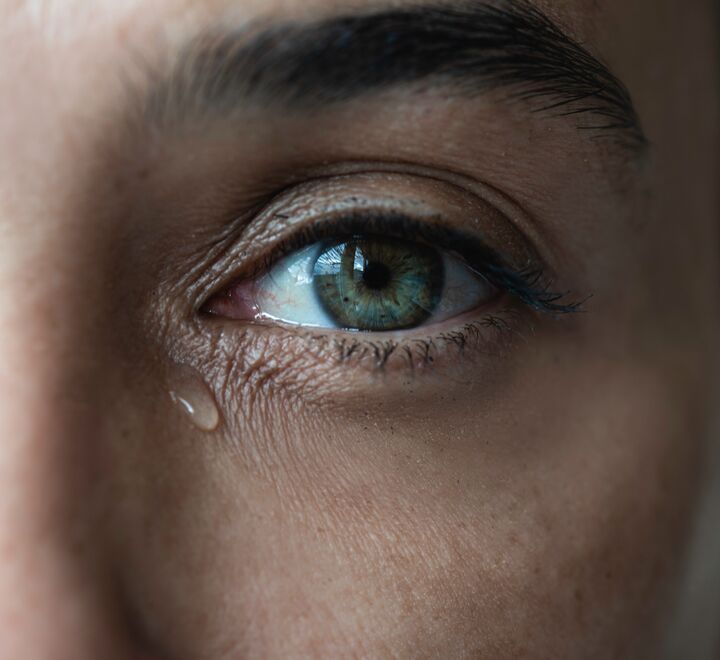Torhild Anita Sørengaard
Førsteamanuensis
Campus Trondheim, Institutt for ledelse og organisasjon
Førsteamanuensis
Campus Trondheim, Institutt for ledelse og organisasjon

Kapittel Torhild Anita Sørengaard, Ingvild Saksvik-Lehouillier (2025)
Kapittel Leif Edward Ottesen Kennair, Torhild Anita Sørengaard, Roger Hagen (2025)
Antologi Leif Edward Ottesen Kennair, Roger Hagen, Torhild Anita Sørengaard (2025)
Artikkel Leon de Beer, Marit Christensen, Torhild Anita Sørengaard, Siw Tone Innstrand, Wilmar B. Schaufeli (2023)
Objective: The World Health Organization recognizes burnout as an occupational issue. Nevertheless, accurately identifying employee burnout remains a challenging task. To complicate matters, current measures of burnout have demonstrated limitations, prompting the development of the Burnout Assessment Tool (BAT). Given these circumstances, conducting an in-depth examination of the BAT's construct-relevant multidimensionality is crucial. Method: This study focuses on both the original 23-item BAT and the short 12-item version, using modern factor analytic methods to investigate reliability, validity, and measurement invariance in a representative sample from Norway (n = 493; 49.54% women). Results: Our findings revealed that the bifactor exploratory structural equation modeling solution (burnout global factor and four specific burnout component factors) best explained the data for both BAT versions. All factors demonstrated adequate omega coefficients, with the global factor showing exceptional strength. Both BAT versions correlated highly with each other and with another burnout measure, suggesting convergent validity. Furthermore, both BAT versions achieved full (strict) measurement invariance based on gender. Finally, our results showed that burnout acts as a mediator in our proposed job demands–resources model as preliminary evidence of predictive validity. Conclusions: The study validates the Burnout Assessment Tool in the Norwegian context. The study supports the reliability, validity, and unbiased nature of the tool across genders. The findings also reinforce the importance of job demands and resources, along with burnout as a key mediator, in understanding workplace dynamics in accordance with job demands–resources theory.
Artikkel Ingvild Saksvik-Lehouillier, Torhild Anita Sørengaard (2023)
Background: There are individual differences in shift work tolerance; however, we lack knowledge about how this is experienced across different occupations, sex and shift types. Aims: The aim was to describe and investigate shift work tolerance, and individual differences in shift work tolerance, in two occupations, between men and women and between day/evening workers and rotating shift workers. Methods: Cross-sectional questionnaire study. The sample was comprised of 315 retail workers and 410 police employees. Results Shift work tolerance was higher among police employees compared to retail workers, among men compared to women, and among day workers compared to evening/rotating shift workers. The difference was larger between occupations than between sex and shift type. Evening workers had more symptoms of shift work intolerance than rotating shift workers. Neuroticism and autonomy were related to all symptoms of shift work tolerance among retail workers, but not police employees. Conclusions: It is important to consider the type of occupation and the work context when tailoring work arrangements to the individual.
Artikkel Torhild Anita Sørengaard, Eva Langvik (2022)
Background This study investigated the association between fair and supportive leadership and symptoms of burnout and insomnia in police employees. Burnout and insomnia can have negative consequences for health, performance, and safety among employees in the police profession, and risk and protective factors should be thoroughly investigated. Methods Data were collected in a police district in Norway through questionnaires administered in October 2018 and May 2019. The sample consisted of 206 police employees (52% males), with an average age of 42 years and 16 years of experience in the police occupation. Results The results showed that a high degree of fair and supportive leadership was associated with lower levels of burnout and insomnia six months later. Fair and supportive leadership explained a greater amount of variance in burnout compared to insomnia. This finding indicates that fair and supportive leadership is a more important buffer factor against burnout than it is against insomnia. Stress was positively associated with burnout and insomnia, whereas quantitative job demands had no significant association with the concepts. Conclusion Fair and supportive leadership can help protect employees from adverse consequences of stress and contribute to improved occupational health, whereas a low degree of support and fair treatment from leaders can both represent a stressor by itself and contribute to poorer coping of stressful events at work. The important role of leadership should be incorporated in measures aimed at preventing and reducing burnout and sleep problems.
Artikkel Torhild Anita Sørengaard, Eva Langvik, Alexander Olsen, Ingvild Saksvik-Lehouillier (2022)
Insomnia is a growing public health concern and a risk factor for reduced health, safety, and performance among workers. This study investigated and compared the predictive value of personality traits and psychosocial factors associated with symptoms of insomnia. The study followed a longitudinal design and included 206 Norwegian police employees (52% men). The predictors of insomnia symptoms were divided into the following groups in the multiple regression analyses: 1) demands, control, and support at work, 2) stress and overcommitment, and 3) the personality traits of the five-factor model. A fourth final model included significant predictors from the initial analyses. The results showed high stability in insomnia symptoms at baseline and follow-up six months later. Neuroticism was the strongest and most stable predictor of insomnia, and associated with an increase in insomnia symptoms after six months. Overcommitment and stress had positive associations with insomnia symptoms but could not predict changes after six months. Social support had a negative association with insomnia, whereas job demands and control at work had no significant association with insomnia symptoms measured at follow-up six months later. The findings demonstrate that the personality trait neuroticism can play an important role in the development and maintenance of insomnia symptoms. Job demands and resources only explained a marginal proportion of variance in insomnia symptoms measured six months later in police employees, indicating that they may be less crucial in the development of insomnia. However, more research on the potential interaction effects between personality and organizational factors is needed. The study highlights the importance of taking personality characteristics into consideration when investigating predictors of insomnia.
Artikkel Torhild Anita Sørengaard, Ingvild Saksvik-Lehouillier (2022)
Background The aim of this study was to investigate the relations between underlying dimensions of burnout (ie exhaustion, mental distance, cognitive impairment and emotional impairment) and sleep reactivity in occupations that maintain critical societal functions during the COVID-19 pandemic. Sleep reactivity refers to the vulnerability of experiencing sleep disturbances during stressful and challenging situations, and manifests as difficulties with falling and staying asleep. Previous research has highlighted the importance investigating psychological factors that may influence or trigger vulnerability to stress induced sleep problems, including factors at work. Methods Longitudinal self-report data was collected using an online survey administered to Norwegian workers employed in health care, education, social services, emergency services and other sectors with critical tasks during the COVID-19 pandemic at two different time points three months apart. The sample in the present study (N = 1331) consisted of 76% females and 24% males with a mean age of 44 years. Results The results showed that work-related exhaustion measured at baseline was the strongest symptom of burnout associated with higher sleep reactivity three months later, followed by emotional impairment. Mental distance and cognitive impairment at work were not associated with sleep reactivity, indicating that these burnout dimensions have less of an impact on sleep than exhaustion and emotional impairment. Conclusion Work-related exhaustion and emotional impairment can lower the individual's tolerance to perceiving events as stressful as well as reinforce the stress response, and contribute to difficulties with initiating and/or maintaining sleep. Workers employed in occupations with critical tasks during the pandemic may be more susceptible to exhaustion, emotional strain and poorer sleep due to increased and prolonged work pressure. Organizational and individual measures that can decrease stress and increase coping should be offered to employees working in high-stress conditions.
Artikkel Ingvild Saksvik-Lehouillier, Eva Langvik, Simen Berg Saksvik, Håvard Kallestad, Hanna Størksen Follesø, Sigrun Borgen Austad, Berit Johanna Dahlberg, Heidi Ringen, Tiril Kristine Tanum, Torhild Anita Sørengaard, ... (2021) Håvard Rudi Karlsen, Trine Smedbøl, Alexander Olsen (2021) Vis alle forfattere
The aim was to investigate how neuroticism moderates the affective consequences of personalized mild-moderate partial sleep deprivation. A total of 52 healthy subjects aged 18–35 years completed the NEO PI-3 at baseline, before they completed an 11-day study protocol. After maintaining habitual sleep for seven days, the participants were asked to sleep 2 h less than their average sleep duration, the last three nights of the study protocol. Sleep patterns were observed using actigraphs and sleep diaries. The participants completed the PANAS questionnaire measuring positive and negative affect at 9 am (±90 min) at day 1, 4, 8 (habitual sleep), 9 and 11 (partial sleep deprived). We found that participants with higher scores on neuroticism experienced a decrease in negative affect following sleep deprivation. Participants with lower scores on neuroticism experienced an increase in negative affect after sleep deprivation. Positive affect was reduced following sleep deprivation, regardless of scores on neuroticism.
Artikkel Torhild Anita Sørengaard, Alexander Olsen, Eva Langvik, Ingvild Saksvik-Lehouillier (2021)
Aim We aimed to examine the cross-sectional and longitudinal associations between sleep and work-related impaired cognitive and emotional functioning in police employees. Methods This study included 410 participants (52% men) employed in a police district in Norway at baseline, of which 50% also participated in the study at 6 months later follow-up. The questionnaires included items measuring work schedule, sleep length, insomnia, as well as impaired cognitive and emotional functioning at work. Results The results showed that insomnia was related to impaired work-related emotional functioning measured at baseline, and to impaired cognitive functioning measured at both baseline and follow-up. Sleep length and rotating shift work were not associated with future decline in cognitive or emotional functioning. Conclusion Our study indicates that the relationship between insomnia and emotional functioning at work may be transient, whereas insomnia can be related to both immediate and future impaired cognitive functioning. Replication of the findings in larger samples is advised. The findings call for an emphasis on the prevention and treatment of sleep problems among police employees as a mean of maintaining and improving cognitive and emotional functioning at work, and thereby reducing the risk for impaired performance and negative health and safety outcomes.
Artikkel Torhild Anita Sørengaard, Ingvild Saksvik-Lehouillier (2021)
Objective This study investigates insomnia among employees in occupations critical to the functioning of society (e.g health, education, welfare and emergency services) during the COVID-19 pandemic. Many of these workers experience higher job pressure and increased risk of infection due to their work. It is crucial to investigate which factors that can contribute to insomnia in these important sectors. Methods Data was collected using an online survey administered in June 2020. The questionnaire measured demographic variables, sleep, stress, psychosocial factors and health concerns (i.e worrying about health consequences related to the pandemic). The sample in the present study consisted of 1327 (76% females) employees in organizations with societal critical functions. Results The employees reported higher levels of insomnia symptoms compared to normative data collected before the pandemic. Health concerns specifically related to COVID-19 had the strongest association to insomnia, followed by work stress. Job demands (i.e workload, time pressure and overtime) had merely a weak association to insomnia. Conclusion Worrying about consequences the pandemic can have on your own health and the health of your family or colleagues have a stronger negative impact on sleep than work pressure during the COVID-19 pandemic. Impaired sleep can have detrimental effects on performance and health, and a stronger focus on preventing insomnia as a mean of sustaining critical societal functions both during and after the pandemic is warranted. Organizations should consider interventions aimed at reducing health concerns among their employees during the COVID-19 pandemic.
Artikkel Eva Langvik, Håvard Rudi Karlsen, Ingvild Saksvik-Lehouillier, Torhild Anita Sørengaard (2021)
There is a general opinion that extraverted people suffer more than introverted people in home-office arrangement and the social distancing regulation imposed by the government during the Corona Virus Disease 2019 pandemic (COVID-19). However, scarce research exists concerning how extraversion is associated with satisfaction with home-office arrangement, to what extent individuals miss their colleagues, level of stress, and whether they meet colleagues outside work during lockdown.
Artikkel Ingvild Saksvik-Lehouillier, Simen Berg Saksvik, Berit Johanna Dahlberg, Tiril Kristine Tanum, Heidi Ringen, Håvard Rudi Karlsen, Trine Smedbøl, Torhild Anita Sørengaard, Mailen Stople, Håvard Kallestad, ... (2020) Alexander Olsen (2020) Vis alle forfattere
The effects of mild–moderate partial sleep deprivation on affective and cognitive functioning were evaluated in a naturalistic home environment, mimicking short sleep typically caused by demands from work or society. A total of 52 healthy individuals aged 18–35 was included in an 11-day study protocol. Participants slept at home, and sleep patterns were observed using actigraphs and sleep diaries. After maintaining habitual sleep for 7 days, the participants were asked to sleep 2 hours less than their average sleep duration for the last three nights of the study protocol. A not-X continuous performance test was administered at 9 am (± 90 minutes) on days 1, 4, 8 (habitual sleep), 9 and 11 (sleep deprivation). Performance-based measures included response accuracy and speed. Participant-reported measures included how well the participants felt they performed and how exhausted they were from taking the test, as well as positive and negative affect. There was a significant change in reaction time, number of commission errors, subjective performance, subjective exertion, and positive affect across the visits. Specifically, there was a linear decrease in reaction time, performance, and positive affect throughout the study, and a significant quadratic trend for commissions and exertion (first decreasing, then increasing after sleep deprivation). The univariate tests for omissions and negative affect were not significant. We conclude that sleeping 1.5–2 hours less than usual leads to faster response speed, but more commission errors and decreased positive affect. This indicates that individuals become more impulsive and experience less positive affect after a period of short sleep.
Artikkel Torhild Anita Sørengaard, Håvard Rudi Karlsen, Eva Langvik, Ståle Pallesen, Bjørn Bjorvatn, Siri Waage, Bente Elisabeth Moen, Ingvild Saksvik-Lehouillier (2019)
Background: This study investigates insomnia as a partial mediator in the relationship between personality and symptoms of anxiety and depression. Methods: The study is based on partly longitudinal data from the ongoing cohort study “Survey of Shift work, Sleep, and Health” (SUSSH) among Norwegian nurses, a survey examining the work situation and health status of Norwegian nurses measured with annual questionnaires. The present study uses data collected in 2012 (Wave 4), 2013 (Wave 5), and 2014 (Wave 6). The final sample at Wave 6 consisted of 2002 participants, of which 91% were females. The questionnaires included items measuring, among others, demographic variables, work time schedule, insomnia (Bergen Insomnia Scale), personality (Mini-IPIP) and anxiety and depression (Hospital Anxiety and Depression Scale). Results: Extraversion and conscientiousness had no significant direct or indirect association with insomnia, anxiety or depression. Neuroticism and insomnia had direct associations to future symptoms of anxiety and depression. Insomnia was also a significant partial mediator of the relationship between both neuroticism and anxiety, and neuroticism and depression, meaning that neuroticism had an indirect relation to symptoms of anxiety and depression through insomnia. When adjusting for previous symptoms of anxiety and depression at Wave 5, insomnia was no longer a significant mediator between neuroticism and anxiety, and only marginally mediated the relationship between neuroticism and depression. Conclusion: The results showed that insomnia may act as a mediator between neuroticism and symptoms of anxiety and depression, but the indirect relationship between neuroticism and anxiety and depression through insomnia is considerably weaker than the direct association. Hence, the mediating effect of insomnia should be interpreted with caution. The sample mainly consisted of female nurses, and the generalizability of the findings to male dominated occupations is limited. Findings from the present study highlight the importance of an integrated approach and strengthen the understanding of how personality and psychopathology are connected.
Artikkel Torhild Anita Sørengaard, Ingvild Saksvik-Lehouillier, Eva Langvik (2019)
The present study examines the relationship between the personality traits of the five-factor model and fatigue among shift workers. The participants were recruited from shift workers employed in a municipality in Norway. Questionnaires were administered at two times, once in January 2013 (T1) and again in June 2013 (T2). The results showed that neuroticism had a positive association with both physical and mental fatigue at T1, and was the only trait that could predict physical fatigue at T2. The study demonstrates the importance of distinguishing between physical and mental fatigue given the distinctive influence of personality traits on the two concepts.
Artikkel Eva Langvik, Ingvild Saksvik-Lehouillier, Leif Edward Ottesen Kennair, Torhild Anita Sørengaard, Mons Bendixen (2019)
Objective: Scant research exists on the gender-specific association between physical activity, insomnia symptoms and depressive symptoms among adolescents. The present study investigates the direct and indirect association of insomnia and physical activity with symptoms of depression. Design: In a community-based sample (N = 1485) we investigated factors associated with symptoms of depression focusing on insomnia. The study also included measures of physical activity and controlled for parental work- and sexual minority status. Body mass Index (BMI) was calculated for a sub-sample (n = 617) reporting weight and height. Results: The results showed that self-reported insomnia was highly prevalent, and the association between insomnia and depression was strong. The association between insomnia and depression was significantly stronger for girls than for boys. The effect of physical activity was substantially weaker compared to insomnia. Insomnia mediated the relationship between physical activity and depression for both boys and girls. Despite expectation based on the existing literature, BMI showed no association with symptoms of depression or physical activity. Conclusion: The results address the importance of a gender-specific approach when investigating mental health among adolescents. Given the high prevalence, interventions aimed at reducing insomnia is important in the prevention of mental illness, especially among girls.
Kronikk Torhild Anita Sørengaard, Hanne Digre (2023)
Når vi ser på bedrifter som lykkes med bærekraft, er det spesielt seks ting som peker seg ut.
Kronikk Torhild Anita Sørengaard (2024)
Svir du av all energien din på jobb, eller har du en kollega det lukter røyk av? Da er det på tide å finne frem brannslukkeren.
Kronikk Torhild Anita Sørengaard (2022)
Stress er relatert til både utbrenthet og søvnproblemer. Støttende og rettferdig ledelse reduserer årsaker til stress.
Kronikk Torhild Anita Sørengaard, Thomas Haarklau Kleppestø, Adrian Dybfest Eriksen, Roy-Ivar Andreassen (2025)
Når KI overtar deler av resonneringen, risikerer vi at mye av tenkningen «outsources» og at studentene blir mer passive i egen læring.
Kronikk Torhild Anita Sørengaard (2025)
Byrådets avgang: Vi forventer bedre av våre ledere
Kronikk Torhild Anita Sørengaard (2025)
Byrådets avgang i Trondheim: – Fremtidens ledere må ta bedre vurderinger og beslutninger enn dette.
Kronikk Torhild Anita Sørengaard (2025)
Nådeløshet er på moten, og godhet er på vei ut. Her er oppskriften på hvordan du omfavner maktens mørke side.
Kronikk Torhild Anita Sørengaard (2024)
Ledere blir satt på prøve når en kollega går gjennom noe av det tyngste i livet: Å miste noen man er glad i.
Kronikk Torhild Anita Sørengaard (2024)
Fire grunner til at flere ledere og organisasjoner burde utvikle og praktisere resilient ledelse.
Kronikk Torhild Anita Sørengaard (2023)
Ledere som behersker disse tre lederspråkene vil enklere kunne redusere usikkerhet, styrke motivasjon og bygge kultur blant sine medarbeidere.
Kronikk Torhild Anita Sørengaard, Morten Erichsen (2024)
Det er dessverre ikke bare i eventyrene folk må kjempe mot onde krefter.
Kronikk Torhild Anita Sørengaard (2024)
Arbeidsplassen er viktig for vår mentale helse året rundt, men kan spille en ekstra viktig rolle på vinteren. Hvordan kan vi ta bedre vare på kollegaene våre når mørket kommer?
Kronikk Morten Erichsen, Torhild Anita Sørengaard (2023)
Intervju Torhild Anita Sørengaard (2021)
Intervju Torhild Anita Sørengaard (2021)
Intervju Torhild Anita Sørengaard (2021)
Deltakelse i media Torhild Anita Sørengaard (2021)
Deltakelse i media Stein Mortensholm, Håkon Magnar Skogstad, Vilde Bråten, Vanja Buvik, Caroline Fredriksen, Veronica Hammer Hjellnes, Torhild Anita Sørengaard, Jacob Hadler-Jacobsen, Frida Hemstad Danmo, Julia Schulz (2020)
Stressede planter, bedre batterier, lovløse nanosystem og mye mer. Du risikerer å lære noe som ingen andre kan, fra ti unge forskere i Trøndelag.
Intervju Torhild Anita Sørengaard (2020)
Konferanseposter Torhild Anita Sørengaard, Eva Langvik, Ingrid Steen Rostad, Ingvild Saksvik-Lehouillier (2024)
Background: The Norwegian police force have recently experienced challenges related to decreased job satisfaction and higher turnover rates among their employees. This can result in reduced efficiency and loss of critical competence in the police force. Job satisfaction can be influenced by both situational (work environment and organizational culture) and individual factors (personality traits, psychological needs, and overall health). This study will focus on exploring the relationship between job satisfaction and personality traits, psychological needs, and indicators of health. There is a great need for studies investigating several individual factors at once to determine which are the most important for this group of employees. Methods: Data was collected through an online questionnaire distributed by e-mail to all employees in a police district in central Norway in October 2018. The sample in the present study consisted of 314 police employees (52% men) with a mean age of 41 years and 4 years of experience in their current position. The respondents were asked to indicate their level of job satisfaction on a Likert-scale ranging from 1 (very little satisfied) to 5 (very satisfied). Personality, basic needs, and health were measured using the NEO-FFI, Basic Needs Satisfaction Scale, Perceived Stress Scale, Bergen Insomnia Scale, and Burnout Assessment Tool. Results: The participants mean level of job satisfaction was 3.88 ± 0.97. Results from the multiple regression analysis showed that autonomy had a positive relation to job satisfaction (β = .19**) whereas insomnia was negatively related to job satisfaction (β = -.18**). None of the other basic needs, stress, exhaustion, or personality traits had significant associations to job satisfaction. Overall, the final model explained 10% of the variance in job satisfaction. Strengths and limitations: The findings in the present study are based on cross-sectional data, which limits the conclusions that can be drawn regarding longitudinal relationships between the independent variables and job satisfaction. Significant strengths of the study include the sample size, statistical power, and the use of valid and reliable self-report measures of the concepts. Conclusion: The positive relationship between autonomy and job satisfaction demonstrates that it is a psychological need that is important to fulfill in police employees. The negative relationship between insomnia and job satisfaction shows the importance of high-quality sleep for well-being at work. Overall, the results illuminate the importance of autonomy and sleep for job satisfaction over the other individual difference and health measures. Due to the selection criteria and educational background police employees have they may be more similar to each other compared to other occupations. Police management should focus on ensuring that their employees feel that they have determination and control over their own work and that their work demands, resources and schedules enables sufficient high-quality sleep.
Konferanseforedrag Torhild Anita Sørengaard (2024)
Background: Symptoms of burnout is common among students within higher education, and pose a significant risk for their health, well-being, life satisfaction, social relations, and academic results. Interventions and measures that improves student’s self-efficacy might be beneficial in stress management and can prevent or reduce symptoms of burnout. However, underlying personality traits can be a driving force behind both self-efficacy and burnout and are beneficial to investigate simultaneously. High neuroticism is a well-known risk factor for burnout and lower sense of self-efficacy, whereas high conscientiousness can act as a protective factor as well as be highly correlated with self-efficacy. Methods: An anonymous and electronic questionnaire was administered to 250 Norwegian business students in the Fall of 2023. A total of 137 students (57% men) responded to the survey, resulting in a response rate of 55%. Burnout was measured with the Burnout Assessment Tool (BAT), whereas personality was assessed with a 20-item version of the Big Five Inventory, and self-efficacy was measured using the General Self-Efficacy Scale. Results: The results from the multiple regression analyses showed that self-efficacy had a negative association to burnout (β = -.38***) and explained 15% of the variance. After adding the Big Five personality traits to the analyses, the association was no longer significant. Neuroticism had the strongest positive association to burnout (β = .40***), whereas conscientiousness was negatively associated to burnout (β =-.27**). The final model explained 35% of the variance in burnout. Further, personality explained 43% of the variance in self-efficacy. Openness to experience (β =.30***) and conscientiousness (β =.37***) were positively associated with self-efficacy, whereas neuroticism had a negative association to the concept (β =-.28**). The internal consistency was high for both burnout (α = .83) and self-efficacy (α = .81), and acceptable for all personality traits except for agreeableness. Strengths and limitations: The study applied a cross-sectional design in a small to moderate sample of students which limits the conclusions that can be drawn. Additionally, applying a short measure of personality do not capture all facets of the personality traits. Hence, the results should be interpreted with caution and replicated in longitudinal studies using larger samples of students. We also recommend that mediating and moderating analyses are included in future studies. This study does, however, provide new insight to the associations between individual differences, self-efficacy and burnout in Norwegian students. It is also the first study that applies the student version of the BAT in a Norwegian sample. Conclusion: Although self-efficacy can be a protective factor against burnout in students, the results in this study can also be contributed to higher general well-being and healthy stress management. Given that burnout is a result of prolonged stress and self-efficacy is associated with better coping abilities, this finding is not surprising. Regarding the associations between personality, burnout and self-efficacy, the findings was in accordance with previous research. However, the moderate to strong positive relationship between openness to experience and self-efficacy indicate that this trait may have an important impact on coping in students. It can also function as a moderating variable in the relationship between self-efficacy and burnout.
Innledning Leif Edward Ottesen Kennair, Torhild Anita Sørengaard, Roger Hagen (2025)
Konferanseforedrag Torhild Anita Sørengaard, Eva Langvik, Ingvild Saksvik-Lehouillier (2022)
Konferanseforedrag Torhild Anita Sørengaard (2022)
Konferanseforedrag Torhild Anita Sørengaard, Ingvild Saksvik-Lehouillier (2021)
Konferanseforedrag Torhild Anita Sørengaard (2021)
Konferanseposter Torhild Anita Sørengaard, Eva Langvik, Ingvild Saksvik-Lehouillier (2021)
Konferanseforedrag Torhild Anita Sørengaard, Eva Langvik, Ingvild Saksvik-Lehouillier (2021)
Konferanseforedrag Eva Langvik, Torhild Anita Sørengaard, Ingrid Steen Rostad, Brita Bjørkelo, Ingvild Saksvik-Lehouillier (2020)
Konferanseposter Håvard Rudi Karlsen, Eva Langvik, Alexander Olsen, Simen Berg Saksvik, Torhild Anita Sørengaard, Ingvild Saksvik-Lehouillier (2019)
Konferanseforedrag Torhild Anita Sørengaard, Marit Christensen, Eva Langvik, Ingrid Steen Rostad, Ingvild Saksvik-Lehouillier (2019)
Konferanseposter Ingvild Saksvik-Lehouillier, Simen Berg Saksvik, Håvard Rudi Karlsen, Eva Langvik, Torhild Anita Sørengaard, Alexander Olsen (2019)
Konferanseforedrag Torhild Anita Sørengaard (2019)
Konferanseposter Torhild Anita Sørengaard, Eva Langvik, Ingvild Saksvik-Lehouillier (2019)
Konferanseforedrag Ingvild Saksvik-Lehouillier, Eva Langvik, Simen Berg Saksvik, Torhild Anita Sørengaard, Alexander Olsen (2018)
Konferanseposter Torhild Anita Sørengaard, Eva Langvik, Ståle Pallesen, Bjørn Bjorvatn, Siri Waage, Bente Elisabeth Moen, Håvard Karlsen, Ingvild Saksvik-Lehouillier (2018)
Konferanseforedrag Eva Langvik, Håvard R. Karlsen, Sylvi Thun, Torhild Anita Sørengaard, Trond Viggo Grøntvedt, Ingvild Saksvik-Lehouillier (2018)
Konferanseposter Torhild Anita Sørengaard (2017)
Konferanseposter Eva Langvik, Ingvild Saksvik-Lehouillier, Mons Bendixen, Torhild Anita Sørengaard, Leif Edward Ottesen Kennair (2017)
Konferanseposter Torhild Anita Sørengaard, Ingvild Saksvik-Lehouillier, Eva Langvik (2015)
| År | Akademisk institusjon | Grad |
|---|---|---|
| 2021 | NTNU | PhD |

BI Business Review
De beste lederne skaper både resultater og relasjoner. De forstår at det ene ikke fungerer uten det andre.

BI Business Review
Har du vært en rettferdig og støttende leder, eller har du «scrooget» deg gjennom året?

BI Business Review
Når KI overtar deler av resonneringen, risikerer vi at mye av tenkningen «outsources» og at studentene blir mer passive i egen læring.

BI Business Review
Byrådets avgang i Trondheim: – Fremtidens ledere må ta bedre vurderinger og beslutninger enn dette.

BI Business Review
Nådeløshet er på moten og godhet er på vei ut. Her er oppskriften på hvordan du omfavner maktens mørke side.

BI Business Review
Det er dessverre ikke bare i eventyrene at folk må kjempe mot onde krefter.

BI Business Review
Arbeidsplassen er viktig for vår mentale helse året rundt, men kan spille en ekstra viktig rolle på vinteren. Hvordan kan vi ta bedre vare på kollegaene våre når mørket kommer?

BI Business Review
Den viktigste oppgaven til en leder blir satt på prøve når en kollega går gjennom noe av det tyngste i livet: Å miste noen man er glad i.

BI Business Review
Svir du av all energien din på jobb, eller har du en kollega det lukter røyk av? Da er det på tide å finne frem brannslukkeren.

BI Business Review
Ledelse kan, i likhet med seiling, være både et eventyr og en strabasiøs ferd.

BI Business Review
Fire grunner til at flere ledere og organisasjoner burde utvikle og praktisere resilient ledelse.

BI Business Review
En analyse av lille julaftens kanskje mest berømte middagsselskap.